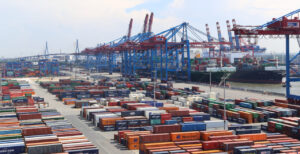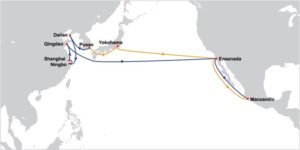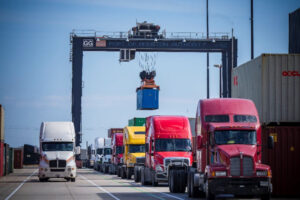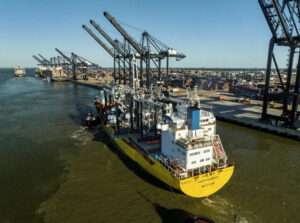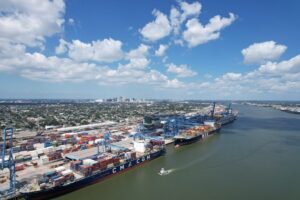According to Drewry, unprecedented transpacific spot freight rates signal that a transformation of the container shipping sector may be underway and that shippers need to adapt.
Eastbound spot container freight rates have not just increased a lot since the beginning of the COVID-19 outbreak; they now exceed previous historical highs by an eye-watering 40%.
This week’s reading for the Drewry Hong Kong-Los Angeles spot freight rate benchmark ($/40ft container), the first spot rate index tracked in the container shipping industry, topped the previous record ($2,880 in 2012) by $1,201/40ft box, broke the $4,000 threshold and reached a 15-year high of $4,081 per 40ft container – more than double the long-term average price.
The independent consultancy said in a statement “We believe what we are witnessing is something beyond the usual dynamics of market supply and demand at work.
“True, Asian container shipments to the US are currently very strong, shippers are replenishing their inventories, there is a shortage of empty boxes in China and some shipping capacity has been taken out by carriers through cancelled sailings.
“But the higher level of concentration in the ocean carrier industry, combined with new, tighter capacity management discipline among carriers are also behind these exceptional freight rate levels. Ocean carriers seem to have come to realise the opportunity presented by the COVID-19 crisis and that by managing capacity closely, they can manage prices with potency.”
Because spot rates tend to be leading indicators of contract rates, contract shippers/Beneficial Cargo Owners should start to budget for higher contract rates on most routes in 2021, Drewry said.
With Asia-US West Coast spot rates currently at $4,000 vs 2020 contract rates typically closer to $1,500, is it possible that ocean carriers could set their 2021 contract rates at $2,000 or $2,500 or even $3,000 per 40ft container in their next tenders.
In support of these market issues, Drewry is supporting shippers/Beneficial Cargo Owners in several ways including its database of spot rates on 700 shipping lanes, bid management expertise for small and medium shippers, and independent forecasting.


